If I were to consider a short list of constantly touring road warriors of the blues, Rory Gallagher of Ballyshannon, Donegal, Ireland would find himself near the top that list. Gallagher‘s fifth studio album, namely Against the Grain, played on this fact with the noticeably worn finish on his Fender Stratocaster guitar. That Gallagher played against the grain of more commercially successful music by focusing on blues-rock, British blues and regional blues, which continued with this album. The Against the Grain album was released in October, 1975.
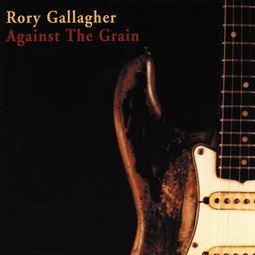
Let Me In opens Against the Grain with a hard driving chord progression that blends the four primary instruments of the album, namely guitar, bass guitar, keyboard and drums, with a robust musicality. The core message for this song was to address a love interest in the pursuit of physical intimacy.
Cross Me Off Your List rolls the instruments into the performance, opening first with drums as performed by Rod de’Ath. Lyrically, the song captures a sense of being romantically at odds with his woman. Gallagher reasons with his woman to hang onto the relationship while she pushes in the opposite direction. While the tension is clear, the song resolves nothing but having us feeling confused.
Ain’t Too Good rolls into the full slate of instrumentation with the keyboard play of Lou Martin. The blues sensibility of this song takes us further than Cross Me Off Your List, with guitar player and singer Rory Gallagher almost giving in to what feels like shabby romantic treatment for the first seventy percent of the song’s lyrics. The seeking of redemption then comes with a romantic request to reconsider; we as listeners do not learn how that request works out.

Souped-Up Ford opens with Rory Gallagher shredding the opening riffs the match the confident mood the song presents. The song is completely an attitude play for the terrain to be conquered, whether considered literally or figuratively as the irresistible romantic.
Bought And Sold tempers that high flying confidence of Souped-Up Ford with the temperature and tempo of experience. Lyrically and musically, we feel not saddled with sadness nor foot to floor and ready to score; the song offers the pragmatic awareness of that in-between space of moving ahead with a fresh approach, knowing to cash in on our losses and to get after the goal with the next effort.
I Take What I Want rolls in instrumentally, beginning with what I take to be the bass guitar of Gerry McAvoy. I hear a song speaking with an over-the-top sense of bravado in projecting a certainty of romantic success in seeking success with a new romantic partner. Inviting the prospective partner to pack a bag based on what his taking possession of how the love interest will or should feel is aggressively forward yet confident.

I feel an answer to I Take What I Want with in Lost at Sea. Gallagher‘s singing feels as melodious as any he offered on the album, the impression of a more acoustic song-playing compared to the electronic guitar of what came feeling musically deliberate. The sense of an emotional rescue to becoming romantically lost due to the forward approach of the previous song attests to a new romantic lesson. The keyboard and electric guitar heaviness to the song’s conclusion offers an outstanding sense of completeness to Lost at Sea. The song I Take What I Want was written by David Porter of Memphis, Tennessee, Mabon Lewis ‘Teenie’ Hodges of Germantown, Tennessee and Isaac Hayes of Covington, Tennessee.
All Around Man offers a series of metaphorical statements with one clear point in mind. Gallagher aims for intimacy through a series of one-night stands. With this song, Gallagher cares not for the relationship damage left behind as he states his intention to leave at the first sense of the cheated upon party catching on to the dealings. The full-throated singing, guitar-tuning and other instrumentation speak to the desperation of the underlying feelings in play. Bo Carter of Bolton, Mississippi joined Rory Gallagher in writing this song.
Out on the Western Plains continues playing in a higher key, invoking an interesting sound that could have been accomplished with a similar outcome with a banjo rather than a guitar. The lyrics echo the deliberateness of this approach, making for a compelling statement about the danger encountered with the approach to romance suggested by All Around Man. That the album Against the Grain has so successfully affected this sense of continuity impresses me immensely. Huddie Willian Ledbetter of Mooringsport, Louisiana reportedly wrote this song, with Rory Gallagher arranging it.
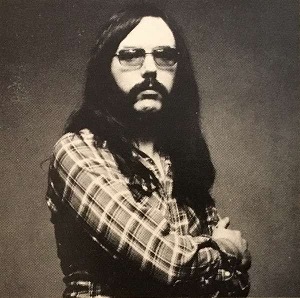
At the Bottom continues from Out on the Western Plains with a further emotional advance from feeling a sense of attack for his romantic approach to knowing that his approach has led to loneliness. The mood musically and lyrically reflects an acceptance that metaphorically gives us an emotional and intellectual understanding of the loss. This song, as clearly indicated by the title, defines the recognition of loss and recognition.
The instrumental only Cluney Blues adds a moment to reflect on the recognition of loss that I feel from At the Bottom. Simply and with confident sense both of need and style, Cluney Blues lets those feelings sit, register, and then prepare us for the final song of the album.
My Baby, Sure completes the album with the uplifting and candid acceptance of landing on accepting his romantic confusion. A rich girl’s daughter is out to have the occasional good time with Rory Gallagher, yet there’s no chance that intimacy or love will ever be possible in this context. The feeling is a wacky acceptance of these truths mixed with a need to comically tell himself, as the song’s singer, to remember to respect himself and move on.

Matt – Saturday, October 1, 2022


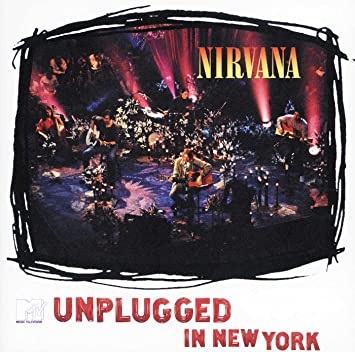 (The album cover for Nirvana‘s live album MTV Unplugged in New York. The album, while recorded in 1993, was not released in 1994).
(The album cover for Nirvana‘s live album MTV Unplugged in New York. The album, while recorded in 1993, was not released in 1994).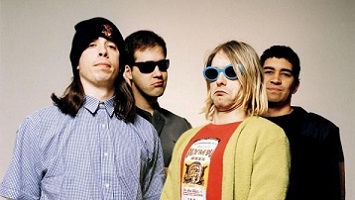 (Included in the picture of Nirvana of
(Included in the picture of Nirvana of  (Lori Goldston played cello for eight songs that appeared on the album MTV Unplugged in New York, including the four songs beginning with Dumb).
(Lori Goldston played cello for eight songs that appeared on the album MTV Unplugged in New York, including the four songs beginning with Dumb).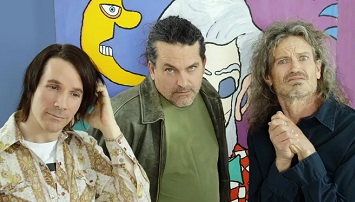 (From left to right are
(From left to right are 
 (The album cover for Wildflowers by Tom Petty).
(The album cover for Wildflowers by Tom Petty).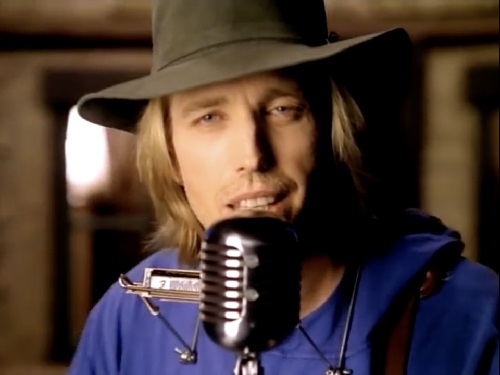 (Tom Petty in the video You Don’t Know How It Feels, which is a part of the Wildflowers album).
(Tom Petty in the video You Don’t Know How It Feels, which is a part of the Wildflowers album). (A single of It’s Good To Be King on vinyl from the Wildflowers album by Tom Petty).
(A single of It’s Good To Be King on vinyl from the Wildflowers album by Tom Petty). (An image of Tom Petty from a
(An image of Tom Petty from a  (A compact disc single of Cabin Down Below from the Wildflowers album by Tom Petty).
(A compact disc single of Cabin Down Below from the Wildflowers album by Tom Petty).